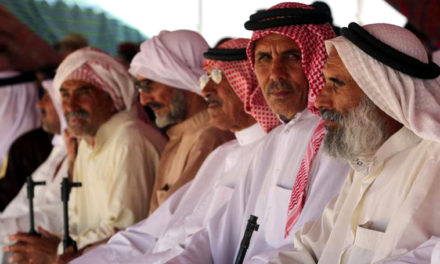As the dust settles from the preliminary election results where no single coalition emerged with a majority of seats, the government formation negotiations have begun in earnest. Iraq will need to consider who its next prime minister will be and I believe the incumbent Haider Al-Abadi is the best choice for Iraq’s stability, democracy and prosperity when compared to the other potential candidates. In this article, I will outline what sets him apart from his competitors.
Prime Minister Al-Abadi came into office when the country was fragmented along ethno-sectarian lines and on the brink of collapse with a third of Iraq’s territory under the occupation of ISIS. Fast-forward four years and Iraq has not only defeated ISIS but is now doing all it can to help rid the world of the terror group through intelligence sharing and conducting targeted airstrikes on the Syrian border. Territorially, the Iraqi state not only defeated ISIS but also has full authority over all its airports, including those within the Kurdistan Region. Iraq today is more united than ever, which is why the Norwegian Nobel Committee acknowledged Abadi’s efforts by shortlisting him for the 2018 Nobel Peace Prize.
These historic achievements have allowed the Sunnis of Iraq to embrace a Shi’i prime minister as their own leader for the first time. Abadi was not only the first candidate to run an electoral list in all 18 provinces but also won just as many seats in Mosul as he did in Baghdad. Sunnis in Mosul gave their vote to a Shia-majority electoral list because of their confidence in Abadi. Having equal support in the north and the south legitimatizes Abadi as the first post-sectarian prime minister of Iraq. This legitimacy has allowed Abadi to improve foreign relations with all of Iraq’s neighbours, which has subsequently enabled Iraq to play an active and more constructive role in regional politics. For the first time in the post-2003 era, Saudi Arabia and Turkey view the Iraqi prime minister as the leader of all Iraqis.
It is important to understand that post-sectarianism was largely achieved because of Abadi’s level-headed and conciliatory approach. When campaigning in Sulaymaniyah, a woman in one of Abadi’s election rallies stood up and began to criticize the prime minister and did so without fear of the consequences. Such a moment is rare in the Middle East, and as Iraqi analyst Zaid Al-Ali points out, it was only possible because of Abadi’s style of governance. Freedom of speech, Al-Ali points out, is enshrined in Iraq’s constitution but it is only practiced because Abadi’s nature allows it. Therefore, Iraq’s freedoms should not be taken for granted.
This characteristic of Abadi was once again visible after the Independent High Electoral Commission announced the preliminary results of the 2018 election. After failing to win the most seats, Abadi called projected winner Muqtada Al-Sadr to congratulate him on his electoral victory. The next day in a historic speech, Abadi addressed the nation, congratulating the Iraqi people on another free and fair election and asked them to respect the results. Abadi demonstrated his commitment to prioritizing the stability of the country above his own political interests – another rare characteristic among Iraq’s political elite.
It is also important to acknowledge why Abadi failed to attract more voters to the polls. He spoke at length about ending the cycle of corruption but many perceived that he did little about it. Abadi took initial steps to halt corrupt practices such as eliminating more than fifty thousand ghost soldiers and halting government hiring to an already bloated federal payroll. However, Abadi chose to focus on tackling the systems of corruption rather than going after high profile corrupt individuals. This was not enough to win the confidence of the general public. With his hands no longer tied by the war with ISIS or the Kurdish secessionist movement, Abadi has the opportunity to finally make good on his word if given a second term.
The recent election campaign has seen few inspiring alternatives emerge that can build on this government’s successes in stabilizing the country, improving its foreign relations and reconciling its communities. Iraq needs a tried and tested leader who genuinely adheres to democratic norms and has enough experience to build on recent gains. In a highly volatile region where the threat of terrorism is by no means over, a candidate that fails to have the trust of both Sunnis and Shias risks losing the peace and unravelling the fragile stability that was won through the sacrifices of Iraqis and the international community over the past four years.

Hamzeh Hadad
Hamzeh Hadad is an Iraqi writer and commentator. He is currently a Master of Arts candidate at the Norman Paterson School of International Affairs.










